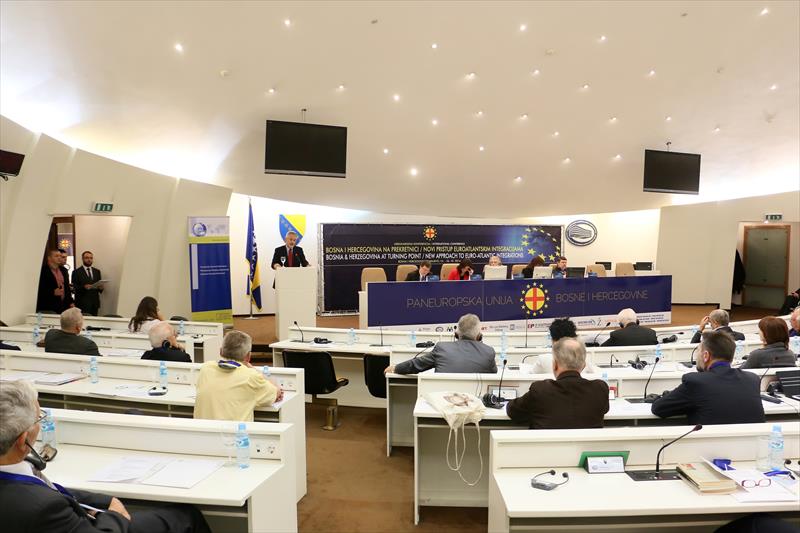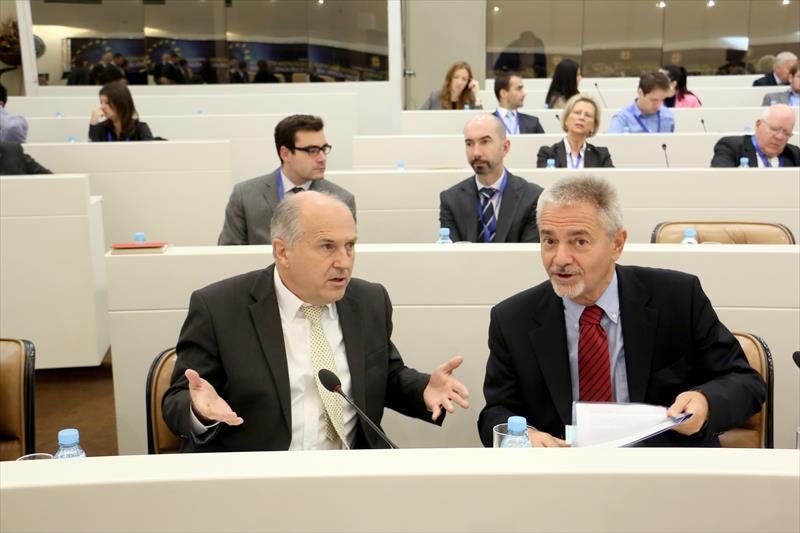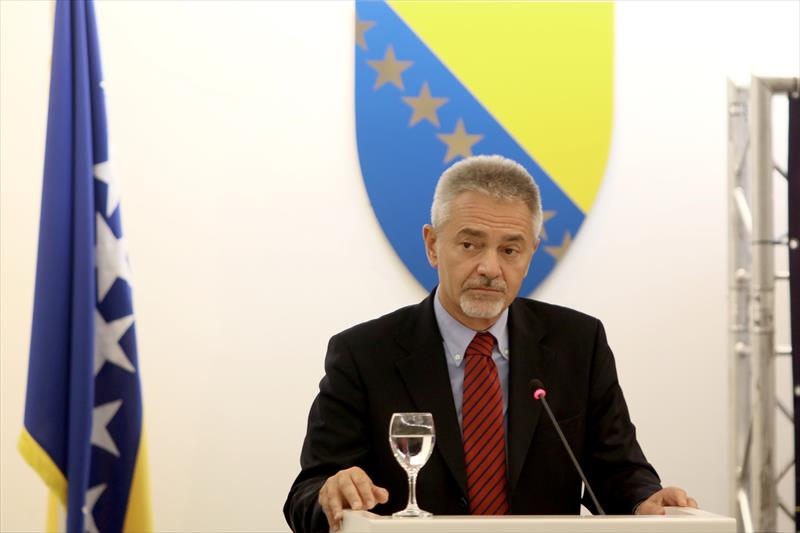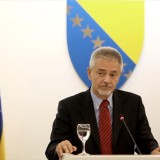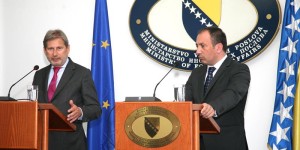Dear Presidents, dear Members of Parliaments, Excellences, Lady and Gentlemen, dear conference participants – first of all, I would like to thank you for the invitation and the opportunity to speak at this conference of the Pan-European Union of Bosnia and Herzegovina.
I would like to focus my short presentation on two main themes which are both relevant to the Pan-European Movement and the broader audience gathered here today – namely the challenges and opportunities for Bosnia and Herzegovina in the EU accession process; and the urgent need for economic reforms to revitalise the country’s stagnant economy.
When it comes to the EU strategic approach, there are some basic principles valid for Bosnia and Herzegovina as well as for the rest of the region. They can be summarized by ‘Fundamentals First’ and include: strengthening rule of law and fundamental rights; strengthening and reforming economic governance and competitiveness, and strengthening democratic institutions.
The latest Progress Report which the European Commission published earlier this month should be used – almost line by line – when designing the work plans and tasks of future governments and parliaments. I would like to encourage the policy makers that will govern Bosnia and Herzegovina but also the citizens that should hold them accountable, to address the very many deficiencies and failures that are outlined in the Progress Report.
It is clear that carrying out these tasks require responsible, dedicated and competent authorities. Those who will be forming the new governments in Bosnia and Herzegovina after the recent elections are facing a huge responsibility to address these tasks and deliver results to the citizens to finally get the country moving from the current impasse. There is no time to loose and therefore we very much look forward to a swift government formation at all levels to enable the hard work to finally start.
Let me reiterate that the EU agenda remains unchanged:
Discrimination in elections to the State Presidency and the House of People has to be ended.
Of crucial importance to the EU is that an effective coordination on EU matters is finally ensured: Bosnia and Herzegovina needs to be able to speak to the EU with one voice, and effective coordination will enable Bosnia and Herzegovina to agree country-wide sectors strategies – such as in infrastructure, agriculture, environment, social development, etc.
Effective coordination has a direct link to the development of the country and the living standards of the citizens: It would enable the EU to release our assistance funds which are aimed to facilitate the modernization of the country, spurring economic growth and creation of jobs and sustainable livelihoods for the people.
The EU remains committed to sustain the reform efforts of this country , including with financial assistance
And this leads me to the socio-economic situation of this country, which is indeed of concern – it is clear that Bosnia and Herzegovina faces some very critical challenges in the next four to five years. The seriousness of the economic stalemate can be seen from some well-known facts which are hardly flattering:
Bosnia and Herzegovina has the highest rate of youth unemployment in Europe (59%) and the second-highest rate of overall unemployment in Europe (28%).
It has one of the highest tax burdens on labour (at 35-42 percent of total labour costs)
Bosnia and Herzegovina is the least business friendly county in the Western Balkans and among the last business friendly countries in the world and has one of the lowest rankings of European countries in the Corruption Perceptions Index.
It has the highest level of social assistance spending in the region (in percent of GDP) ad has the worst targeting of social assistance spending (in percent that reaches the poor)
The new authorities have the obligation to address the needed socio-economic reforms. We know that employment (or rather unemployment) is the top concern for the vast majority of people in the country. People want jobs and they want to earn a decent living. They want less corruption; they want social assistance targeted at those that need it.
The EU and all other International Partners are ready to help in addressing these socio-economic challenges if you want us to. In July this year, citizens and experts from all segments of the society of Bosnia and Herzegovina – from civil society, employers and employees associations, political parties, media etc. – assisted by the EU, the US and the International Financial Institutions, spelt out concretely in the Compact for Jobs and Growth, what they think should be done to get the economy moving. The conclusions of this biggest socio-economic consultation process ever undertaken in Bosnia and Herzegovina include precise requests to the new Governments:
Reduce taxation on work to make it less of a burden to employ new workers.
Increase openness and competition in the labour market to make it easier for young people and unemployed people to find work – and to ensure hard work pays off.
Slash the requirements for and time taken to start a business.
Pass an improved insolvency framework so businesses can be restructured faster.
Produce clear, public e-registers of procedures for licences and permits.
Reduce the amount of privileged pensions, and raise social assistance for those who really need it.
Let me conclude by stating once again that we expect those measures to be reflected in a new government program. Despite the ongoing and future challenges, Bosnia and Herzegovina has a clear European perspective. This is a fact and has been re-confirmed by the European Parliament and all EU Member States on numerous occasions, including in the European Council Conclusion of the last week. It is equally a fact that the overwhelming majority of the citizens of this country want their policy-makers to treat EU integration and the socio-economic situation as the top priorities. We are looking forward to seeing the policymakers’ response in the next few months
Thank you for your attention!

